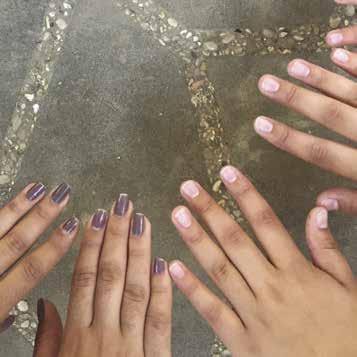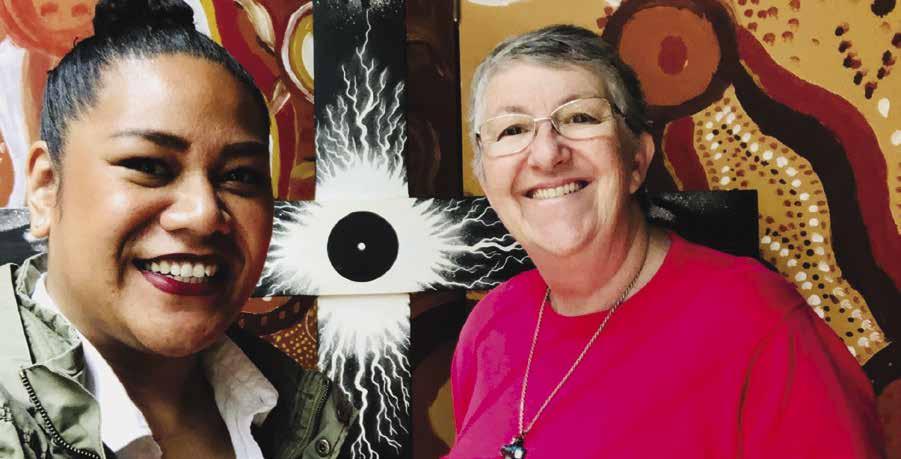
2 minute read
Lebanon
For survivors of genderbased violence in Lebanon, access to protection services is helping them imagine a new and hopeful future
Advertisement

For Rosella*, a mother of five, escaping violence was her first step to a new life.
She is one of many women in Lebanon who have experienced gender-based violence. As the Syrian refugee crisis continues, Lebanon continues to host 1.5 million refugees — over a quarter of the total population. Economic instability has pushed thousands of people into poverty and prompted large-scale protests. Many households struggle with limited employment options and ongoing food insecurity, as well as community tensions
We are unable to share photos of Rosella and her family for their protection. Photo: Caritas Lebanon.
between local Lebanese and refugee groups. These challenges have led to a steep increase in the levels of family violence and in particular violence against women and children. Rosella first sought help at a shelter just outside of Beirut over three years ago and has since transformed her life. The Lebanon Protection Program, an initiative of Caritas Lebanon, Catholic Relief Services and Caritas Australia, provides protection services to women and their children who are survivors or at risk of gender-based violence. The majority of women and children in the shelter have fled the conflict in Syria and experienced trauma since their arrival in Lebanon. Once in the shelter, women and their families are able to heal and build new lives in a safe and supportive community. At the shelter, Rosella and her children participate in counselling sessions, livelihood skills training, and art, drama and music therapy sessions to promote healing. This healing process helps to stop the cycle of violence and supports participants to envision a more peaceful future. “My favourite part is the drama therapy because playing your problems makes them easier to solve,” says Rosella. “It helps me and my children express our feelings and feel better about ourselves. I also think that now my children are calmer, and their behaviour is more positive.” Rosella has also learned sewing and embroidery and has started selling these services to the local community. “I’m now more autonomous and independent,” says Rosella. “Now I can work from home to earn money to support our daily needs.” The children in the family are catching up on their education after years of being kept out of school by Rosella’s ex-husband. In the shelter they receive tutoring and homework support, and some are even planning to continue their studies at university. “I’m much more confident in my children now,” says Rosella. “They’re keen to learn, and they talk about plans to do more school, maybe even go to university. They can see a fruitful future for themselves now.” After three years in the shelter, Rosella’s children have been able to break the cycle of abuse and imagine better lives for themselves. Now, the family lives independently in a nearby house recently allocated to them. They received support from the Lebanon Protection Program for the first month of living expenses and have been referred to shelter assistance services.
Program achievements
The program supports over 900 women and children in Lebanon who have been affected by gender-based violence or displacement with accommodation, meals, livelihood skills training and psychosocial support.
This program has been supported by the Australian Government through the Australian Humanitarian Partnership (AHP) and public donations to Caritas Australia.










